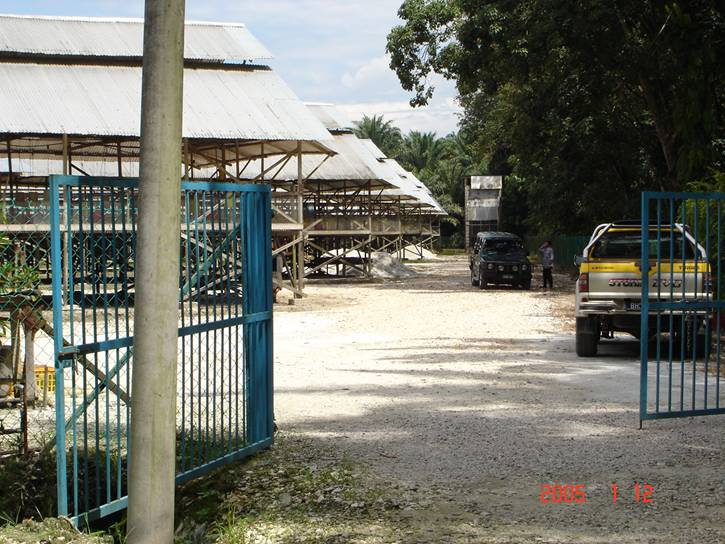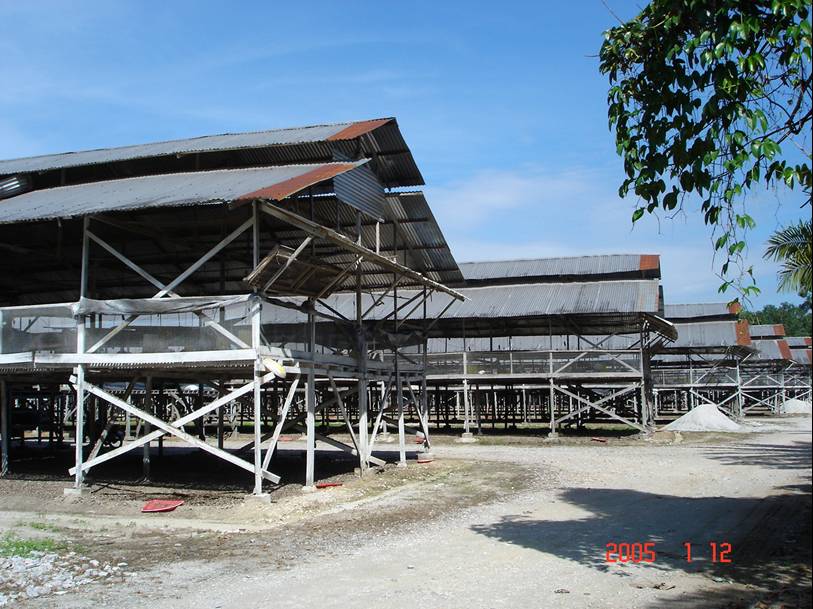Kawalan Lalat
|
FLY CONTROL MEASURES TAKEN IN BROILER CHICKEN FARMS |
|||||
 |
|||||
|
Hold meetings with agencies involved:- District office, Land office, Health and District Veterinary office with farm management. Warn, emphasize and advise farm management on importance of sanitation and fly control. |
|||||
| Put up a schedule and impose a time limit of 3 months to overcome problem. | |||||
|
|
|
 |
Make visits and fly index count taken once every 2 weeks for 3 consecutive months. Reports submitted to agencies involved after each visit.
|
||
| Take fly index count | |||||
|
Hold discussions. Discussion should be between Company's Board of Directors and farm manager (not with farm workers) and District Veterinary Officer. Any decisions made should be adhered. |
 |
||||
 |
One worker solely held responsible for proper handling & management of poultry waste. He should always be on the alert for unhygienic conditions, waste accumulation, dirty surroundings conducive for breeding of flies etc. in farm at all times. |
||||
|
Products |
|||||
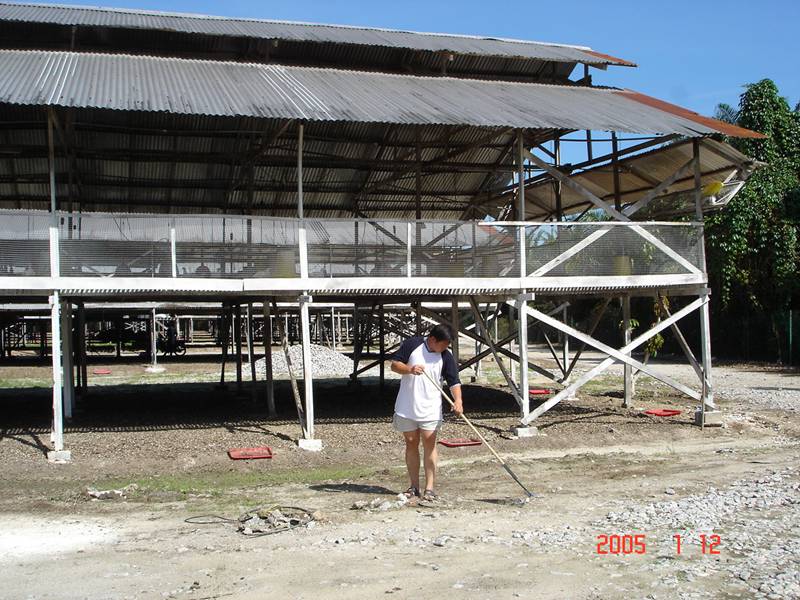 |
|
Identify one worker to be responsible for tasks entailed in stepping up efforts to improve sanitation of farm & surroundings and maintenance eg. having sand/stone roads, grass cut, undergrowth cleared, spilt feed cleaned up, workers' quarters well maintained etc. |
|||
|
Identify worker |
Sand/stone roads |
Such duties will be considered full time and the said worker given extra monetary gain ranging from RM200-500 a month as an encouragement for his extra vigilance. |
|||
|
He will be given full authority including reporting/informing farm management any workers disobeying his orders. Such workers may face disciplinary action and be dismissed. |
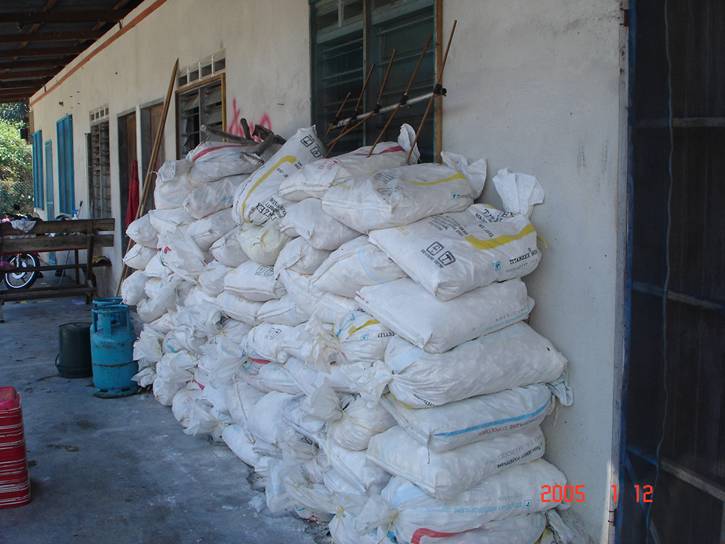 |
 |
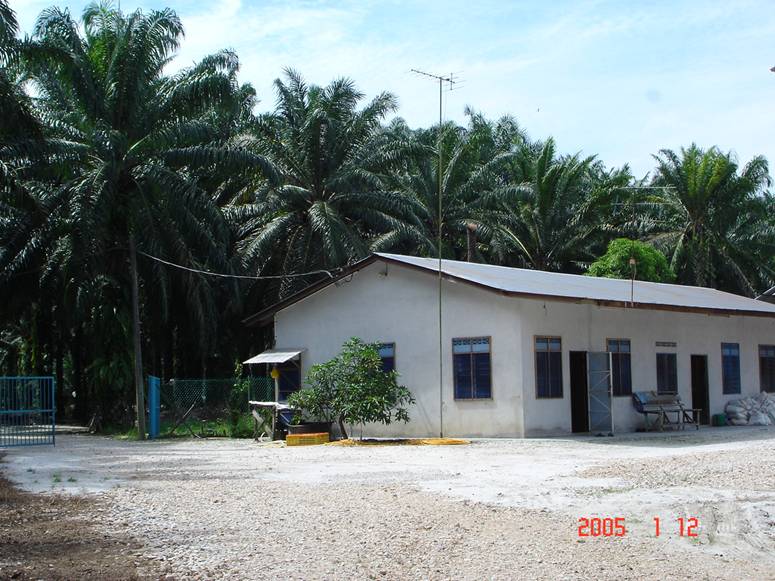 |
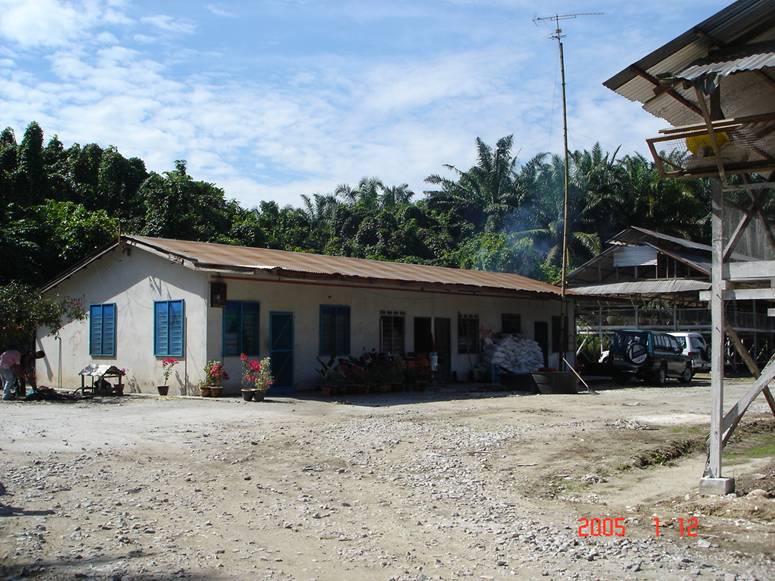 |
|
| Farm & surroundings | |||||
|
List down all steps/actions taken in fly control and put up a program/work schedule. This will be monitored by farm manager and District Veterinary officer through surprise visits. Each and every step taken have to be documented for examination by Department of Veterinary Services. |
|||||
|
Report and inform the farm management directly any actions listed but not carried out. Issue "On the spot" warning and rectification to be done. |
|||||
 |
 |
Products used - Insecticides, residual sprays, larvicides, feed additives i. Neporex" and "Pyrillroid 26.3%" sprayed on an alternate basis once every 3 days to kill larvae. ii. "IGR Mectin 10%" sprayed once a week (at night). iii. "SNACK" as poison feed for adult flies given once a week. iv. Diesel/petrol spray all moist, damp surfaces (result of water spills/rain) to avoid larvae growth. |
|||
| Good farm management practices i. Roads, pathways within farm laid with sand and stones. Wherever possible whole farm area laid this way to avoid water retention. Immediate attention given to wet, muddy areas with stagnant waters. ii. Poison weeds surrounding farm once a month. iii. Good drainage system surrounding hen house well maintained at all times. iv. Repair/deepen/widen drains outside farm. v. Cleanliness of workers' quarters. Garbage, left-over foodstuffs and others considered suitable materials attracting flies packed and disposed of in covered bins. vi. Not allowed to rear pets like cats and dogs within farm. vii. Personal hygiene of workers. viii. Avoid spilling of feed while feeding in hen houses. ix. Increase workers' awareness as to importance of fly control and methods used. (motivation course). x. Collect & tight pack poultry waste in secured tight storage as soon as chickens are sold and sell ASAP. |
 |
|
 |
||
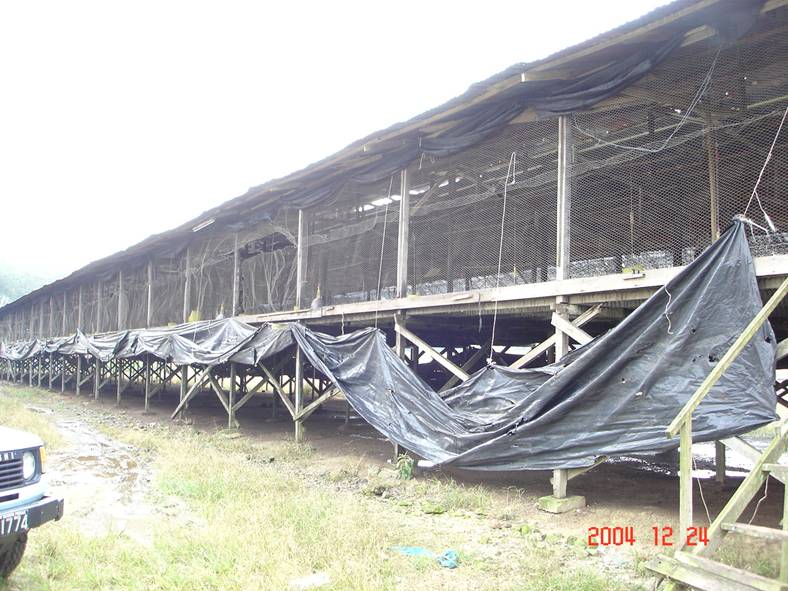 |
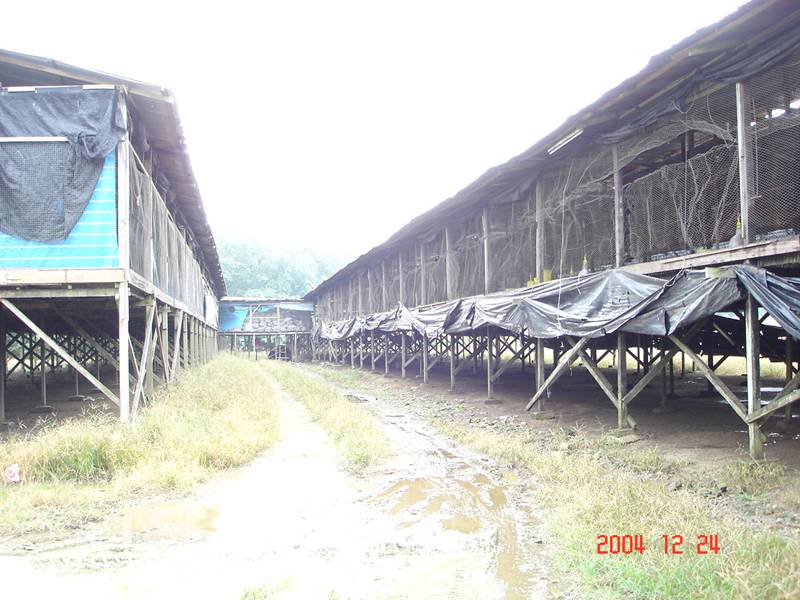 |
Before (problem farm with fly infestation) |
|||
|
|
|
 |
 |
|
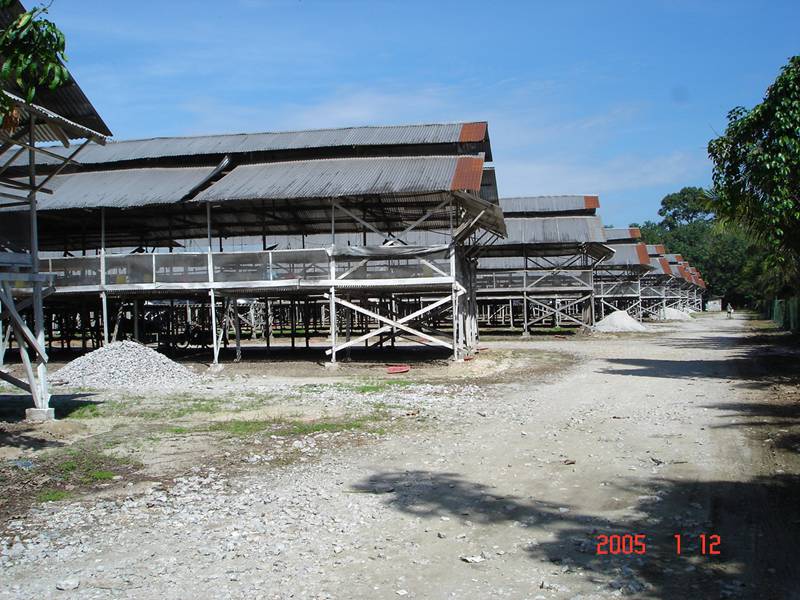 |
|
After (successful implementation of fly control measures) |
|||||
 |
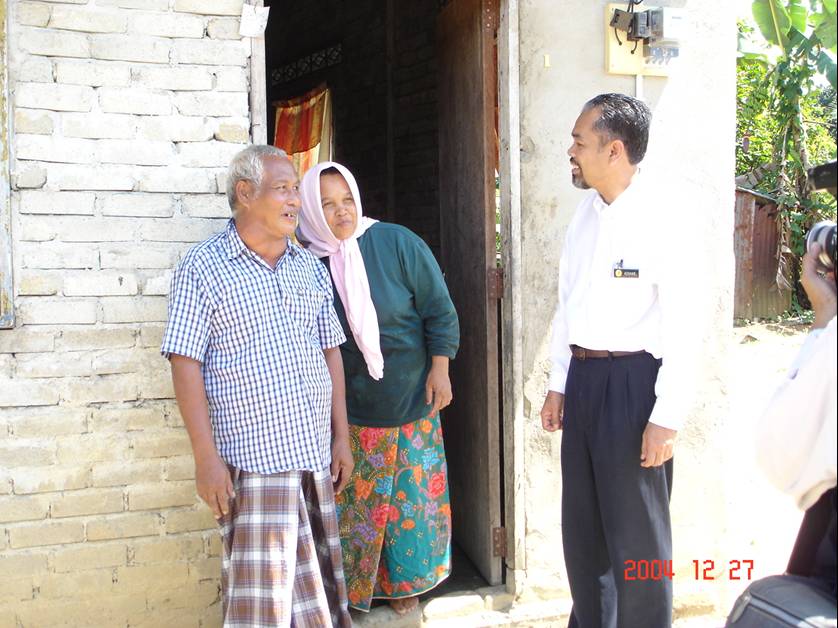 |
Contact locals staying nearby for feedback. Amongst them, complainants, food stall operators, restaurants, school headmasters and others. Ask them to inform District Veterinary Office whenever there is abundance of flies in the area. |
|||

-
JALAN SULTAN AZLAN SHAH (U),
31400 IPOH, PERAK DARUL RIDZUAN
-
05-5459111, 05-5459122, 05-5459133
-
05-5472561, 05-5482712
-
Alamat emel ini dilindungi dari Spambot. Anda perlu hidupkan JavaScript untuk melihatnya.
 Laman Utama
Laman Utama English
English 






